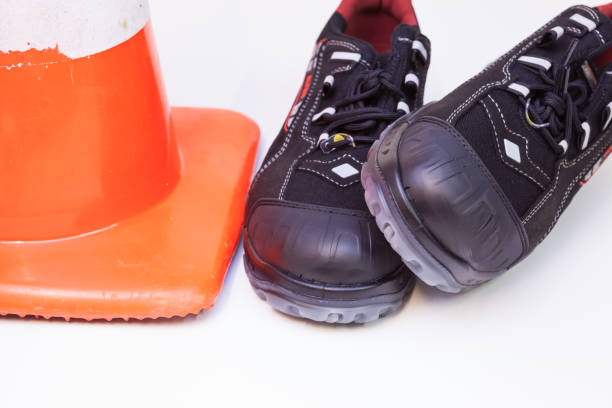In the modern workplace, safety is paramount, and ensuring the well-being of employees is a top priority for employers across industries. One often-overlooked aspect of workplace safety is the protection of the feet. Whether you work in construction, manufacturing, healthcare, or any other field, wearing appropriate uvex safety boots is crucial for safeguarding against a variety of hazards. In this blog post, we’ll explore the importance of safety footwear and why it’s essential for protecting your feet in the workplace.
Preventing Injuries and Accidents
Uvex safety work boots serve as a critical line of defence against workplace injuries and accidents. In environments where heavy objects, machinery, or hazardous materials are present, the risk of foot injuries is significant. Safety shoes with reinforced toes and soles provide protection against impacts, punctures, and crushing injuries, reducing the likelihood of serious accidents that could result in disability or long-term impairment.
Protection from Falling Objects and Compression
In industries such as construction and manufacturing, workers are often at risk of injuries from falling objects or compression hazards. Steel-toed safety boots are designed to withstand the impact of heavy objects and provide a protective barrier against crushing injuries. By wearing safety footwear with reinforced toe caps, workers can minimise the risk of fractures, contusions, and other injuries caused by falling or rolling objects.
Resistance to Electrical Hazards
For workers in industries where electrical hazards are present, such as construction, utilities, and manufacturing, safety footwear with electrical hazard (EH) protection is essential. EH-rated boots are designed to provide insulation against electrical shocks and reduce the risk of electrically-induced injuries. By wearing EH-rated safety boots, workers can work safely around live electrical circuits and equipment, protecting themselves from serious harm.
Slip and Fall Prevention
Slips, trips, and falls are among the most common causes of workplace injuries, leading to sprains, strains, fractures, and other musculoskeletal injuries. Safety footwear with slip-resistant outsoles helps prevent accidents by providing traction and stability on slippery surfaces such as wet floors, oil spills, or uneven terrain. By wearing slip-resistant safety shoes, workers can reduce the risk of falls and maintain a safe and stable footing in hazardous environments.
Compliance with Safety Regulations
In many industries, employers are required by law to provide appropriate personal protective equipment (PPE), including safety footwear, to employees who are exposed to workplace hazards. Compliance with safety regulations ensures that workers have the necessary protection to perform their jobs safely and reduces the risk of costly fines, penalties, and legal liabilities for employers. By wearing mandated safety footwear, both employers and employees demonstrate a commitment to workplace safety and compliance with regulatory standards.
Conclusion
Safety footwear plays a critical role in protecting workers from a wide range of workplace hazards, including impacts, punctures, electrical shocks, slips, and falls. By wearing appropriate safety shoes or boots, workers can minimise the risk of foot injuries, accidents, and long-term disabilities, ensuring a safe and healthy work environment for all. Employers have a responsibility to provide employees with the necessary safety footwear and ensure compliance with safety regulations, while employees must prioritise their own safety by wearing mandated PPE at all times. Together, we can create safer workplaces where employees can perform their jobs confidently and without fear of injury.

